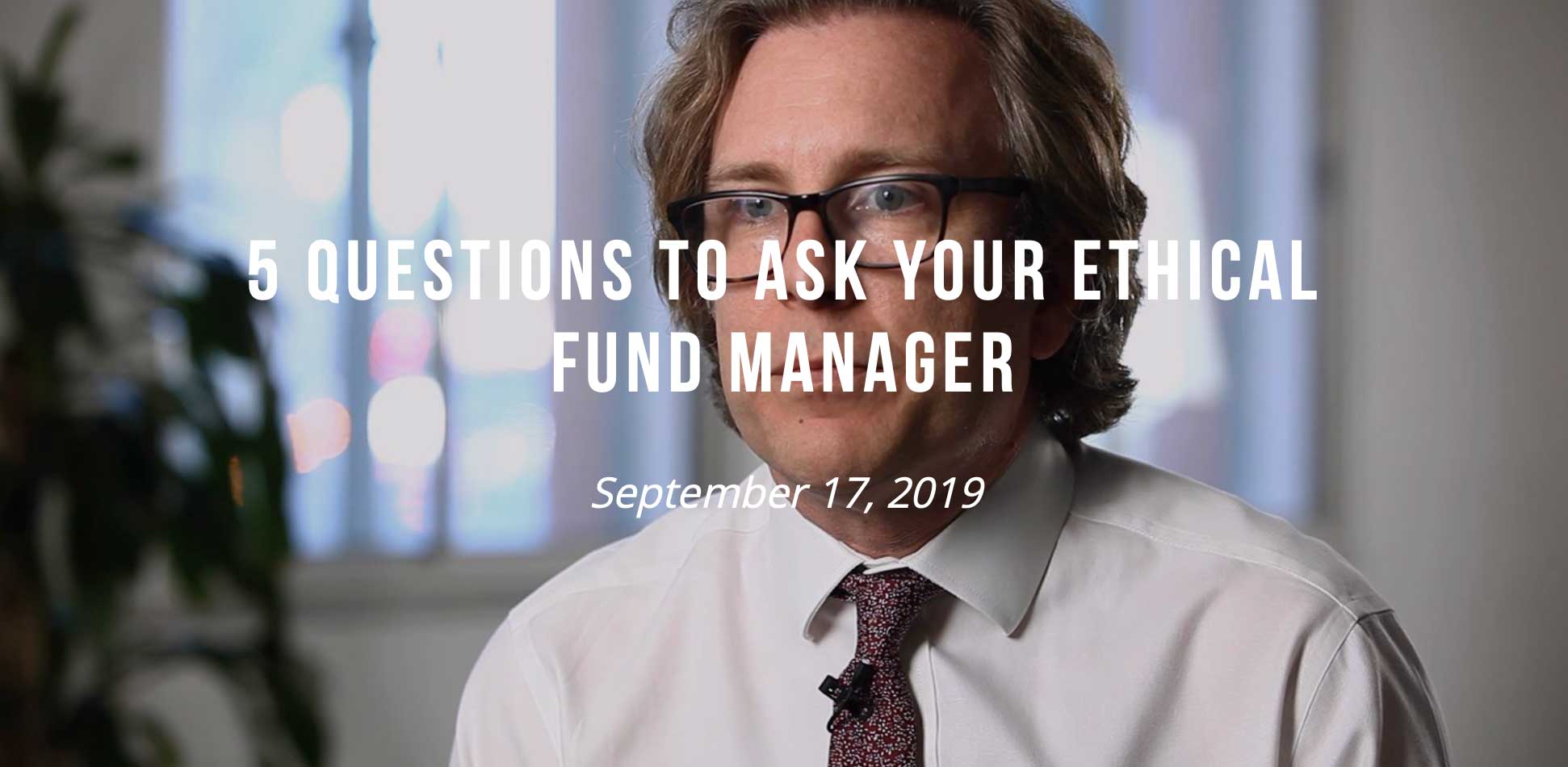
5 questions to ask your ethical fund manager
– Morphic Asset Management
Morphic’s Head of Research James Tayler goes through five important questions you need to ask your ethical fund manager.
1. Is there a responsible investment or and ethical investment policy available in the public domain?
That is a document where investors can see whether the investment process and philosophy are aligned with their values.
It’s worth explaining the difference between ethical investing and responsible investing:
- Ethical investing: values and ethical principles are the primary filters for selecting companies to add to the portfolio. Those values might be faith-based: for instance, not wishing to be invested in alcohol.
- Responsible investment, on the other hand, is where the manager assesses the risks and opportunities through the lenses of Environmental Social and Governance criteria of the investments made. It’s not value-driven, but it identifies important materiality around additional risks and opportunities.
2. What companies in the fund or the product invested in?
If your values suggest that you don’t want to be invested in mining companies or oil and gas companies because of your concern about the environment, you want to make sure that your money is not invested in those companies.
How can you be sure? You need to ask your fund manager to fully disclose the companies within that portfolio. And by fully disclosed, I mean not just the top five or top ten, you should require the full portfolio. If it is not disclosed, you should wonder what has that fund manager got to hide if they are only telling you their top ten holdings?
3. Does the fund manager vote for the shares owned in the portfolio?
Why is that important? Shareholders typically get an annual opportunity to vote on important matters regarding that company, be it matters of governance or strategy. Those votes actually belong to the clients of the fund, the unitholders, they don’t belong to the manager. So it’s the manager’s fiduciary responsibility to vote appropriately and a part of that duty is also the transparency around that voting. I would expect the fund manager to publish on an annual basis its voting records and particularly point out where the fund has voted against management’s recommendation to provide visibility, transparency on that and also explanations as to why they voted against the management.
4. Is the fund or the product a member of a relevant industry body?
In the same way that we choose a chartered accountant or a certified builder, membership of a relevant body gives an extra level of security, an extra layer of assurance that the investment product is actually good to label and that the way it is managed is aligned with what you were preached.
Two relevant examples of industry bodies would be:
- the Principles for Responsible Investment PRI. This is a global formally UN-backed organization and as a signatory, fund managers have to undertake an annual assessment of their investment philosophy and processes to judge how responsible and ethical that process might be. The results of that transparency report are a grading across a number of criteria. Any potential investor can download that report from the PRI’s website to get an external validation on whether this fund is true to label or not.
- closer to home, the Responsible Investment Association of Australasia RIAA can certify investment products as well as Super Funds and bank accounts. And an ethical or responsible investment certification from them shows that the manager has met a set of tough criteria, giving external assurance that they are actually true to label.
5. Does the manager have an independent committee or a board to decide on certain investment in grey areas?
Some investments will typically be a grey area and a dedicated independent committee should be able to veto that investment if they deem it is outside of the Responsible Fund’s mandate.
Why is that important? Let us give the example of Woolworths, an Australian company: it is predominantly a retailer but up until recently, it also has alcohol distribution business, Dan Murphy’s, and it has a stake in a hotel and gambling company. Now, these are relatively small parts of the business, but they certainly don’t match certain investors’ values. Hence an independent committee or board can make the decision around a grey area, regardless of other financial considerations.
17th Sep 2019 – James Tayler, Morphic Asset Management

